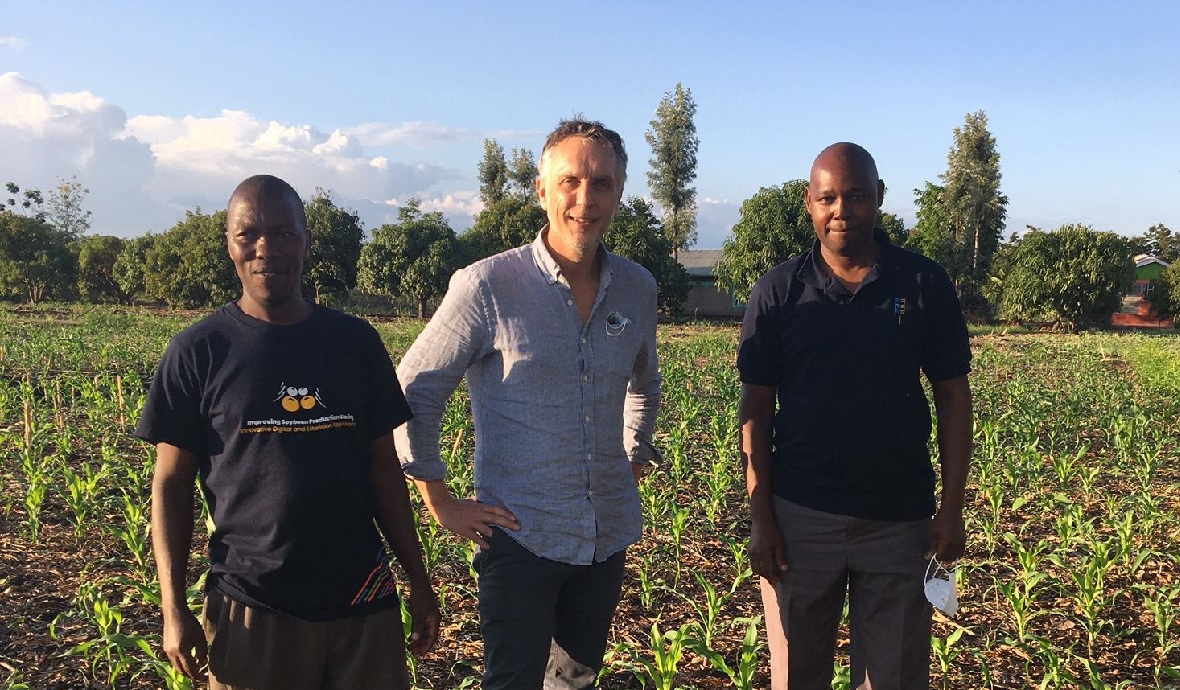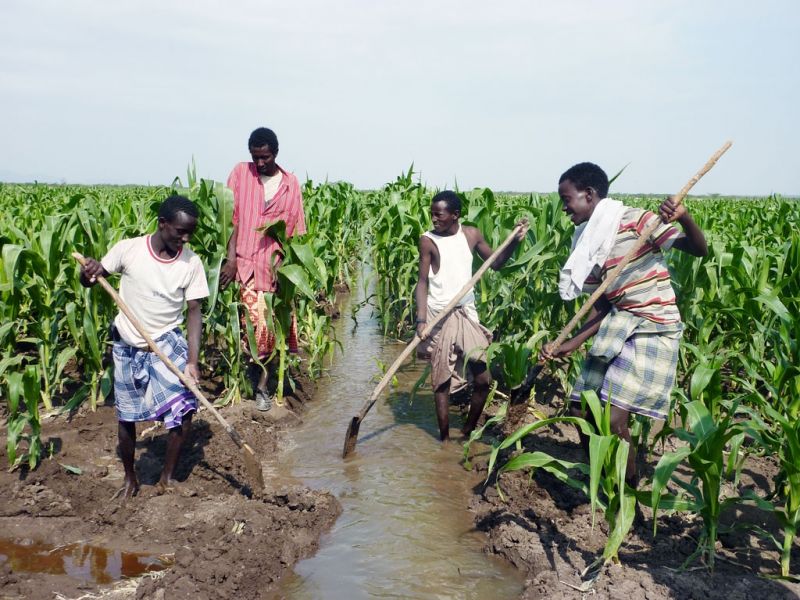Dan Collison is the CEO of Farm Africa, an NGO dedicated to reducing the rates of extreme poverty in East Africa by helping farmers grow and sell more produce. Farm Africa plays an active role in communities across Ethiopia, Kenya, Tanzania, DR Congo and Uganda, driving a sustainability-focused approach to reducing poverty through forestry management and goat rearing, amongst other sustainable efforts. The organisation has been working on the continent for more than 30 years. More than half of the worlds extreme poor live in Sub-Saharan Africa, with the vast majority of those working in the agricultural sector; a single poor harvest can plunge the most vulnerable into the depths of poverty.
What does economic justice look like to you?
The entire African continent has contributed just 2.8% of all emissions, in history, ever. Justice means ensuring that emissions remain low, but don’t compromise the social and economic development of African nations. That is not fair. For example, in Ethiopia, we lead goat rearing programmes designed to increase local resilience and decrease dependency on forestry, leading to higher and more diversified incomes and sources of nutrition. The effectiveness of this programme has been significantly hampered by the UK’s Aid Budget Cut earlier this year; that’s the opposite of climate justice. We’re asking those with the least to sacrifice the most.

Climate injustice certainly makes it more difficult to lift people out of extreme poverty. For example, those in Sub-Saharan Africa (south of the Sahara) are disproportionately affected by climate change. The sizable cut to the UK aid budget, a decision I do not agree with, deeply hinders providing value and benefits to the hundreds of thousands of farmers we work with. Taking those resources away makes the needed sustainable adaptation much more difficult and certainly constitutes climate injustice.
Do you find that grassroots community action led by local leaders is increasingly important to realising the ideals of climate justice?
Yes – Bale eco-region in Ethiopia is a brilliant example of community action and strengthening of our work in the participatory forestry community, which does 2 very important things. Firstly, preserving the forest environment by dramatically reducing rates of deforestation and secondly, diversifying and increasing the income of co-operative members towards more sustainable sources. For example, co-operatives are encouraged to use land-use agreements to develop alternative sources of income from sustainable forestry products (coffee beans) as opposed to chopping and selling wood. Reduced deforestation also produces carbon offsets/credit, which is fully verified. Forest co-operatives in Bale eco-region have generated 10m metric tonnes of carbon credits over the past 10 years which are sold internationally, and funnel the revenue back into local authorities and communities. Such examples are certainly successful due to the energy and commitment of local community-based groups. So yes, developing capacity/expectation/role of local civil society structures, forest co-operatives to diversity income and ensure forest protection, and therefore see benefits via carbon offsets, is a really good example of a sustainable approach to realising global climate justice.

Do you believe the urgency of the climate justice movement should be expressed by groups such as XR (Extinction Rebellion)? What role can grass-roots groups play in the developed world?
I would not answer this in my capacity as CEO of Farm Africa. Direct action is perfectly legitimate, whether it’s suffragettes or apartheid, there is a long history of direct action which is very disruptive. There is certainly a part of me that admires those people, another part of me understands why those getting across Vauxhall bridge in an ambulance find that more than inconvenient. Crisis, whether XR, striking, recycling, there’s a range of stuff people are doing, and it all has to be done. Our role (Farm Africa’s) partly changes the support on the ground in the face of climate threats, our advocacy work (indirect) – about sharing our experience and evidence for what works. Ultimately, we’re about sharing evidence to influence policy, coming from a technical evidence-based background.
Should wealthy individuals be pressured more than the average consumer?
Billionaires shouldn’t do out talking for us. There is an important role for those with resources and influence to be a spokesperson and to lead opinion. Gates is perhaps a good example, he’s spent a lot of money on climate action, education and development frontiers. It has triggered a wave of philanthropy, but you can also ask yourself the underlying motivations – big philanthropy does have an important role in tackling the climate problem (despite it being their obligation). The most powerful voices come from the communities directly affected and there are lots we can do to empower those, and no one wants to be lectured by a billionaire.
Should young people be leading the charge for climate justice, for example, XR (Extinction Rebellion)?
Young people have the most legitimate voice on the issue of climate injustice. My kids, both teenagers, are scared. Not just worried, but scared about what the world may look like in 50 years time. Young people must demand accountability from the system, whether by-elections or direct actions; those in positions of power must also actively listen to and make the changes that we need.


